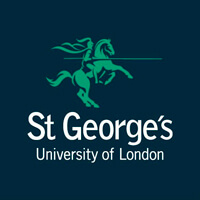fees waived
Medicine, MBBS
St George's, University of London, United Kingdom
Subject ranking
UK / ARWU 2024 18th
UK / USNews 2024 18th
UK / Times 2025 28th
Costs
food & rentS$25K / year
Entry requirements
Scholarships
Limited quantity
Information
Code
Intakes
Website (External)
Programmes
Information
Duration
2030
Course summary
Clinically focused and patient-centred, our five-year undergraduate degree will equip you with essential knowledge, understanding, skills and attitudes to practice medicine competently and professionally.Your hands-on learning starts with practical classes in our pathology labs, anatomy and dissection rooms, alongside GP and community visits. Over the course of your studies, you’ll participate in a comprehensive series of clinical placements in medicine, surgery, general practice, senior health, paediatrics, obstetrics and gynaecology, psychiatry and diagnostics such as radiology, as well as other specialties.On successful completion, you’ll be granted the primary medical qualification – Bachelor of Medicine, Bachelor of Surgery (MBBS) – and be eligible to register with the General Medical Council (GMC) and begin its Foundation Programme. Course highlights
- Contact with patients and clinical placements begins in your first year and over subsequent years, spanning the full range of disciplines.
- Specialist facilities include state-of-the-art laboratories, a pathology museum and an advanced patient simulation centre, which enables you to learn clinical skills and practice techniques in a safe environment.
- On graduation, you will be eligible to apply for provisional registration with the GMC and license to practice in approved Foundation Year 1 posts.
- Competitive opportunity to intercalate at St George’s or at an alternative institution, spending an additional year of study on top of your degree to obtain an iBSc in a variety of related subjects.
Modules
You can find extensive information about the modules you can expect to study on this course on our website: https://www.sgul.ac.uk/study/courses/medicine#modules
Assessment method
You can find detailed information about assessment methods for this course on our website: https://www.sgul.ac.uk/study/courses/medicine#study
Professional bodies
Professionally accredited courses provide industry-wide recognition of the quality of your qualification.- General Medical Council
You can find extensive information about the modules you can expect to study on this course on our website: https://www.sgul.ac.uk/study/courses/medicine#modules
A local representative of St George's, University of London in Singapore is available online to assist you with enquiries about this course.

